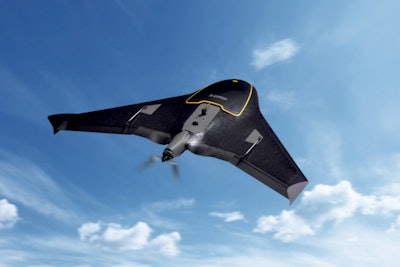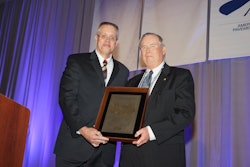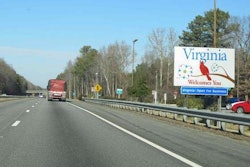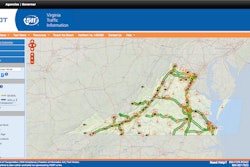 Trimble’s UX5 fixed-wing drone
Trimble’s UX5 fixed-wing droneThe “First in Flight” state is offering drone user guidelines for all those new to unmanned aircraft systems (UAS) in time for what could be a heavy gift-giving season for the devices.
“We’re proud of North Carolina’s legacy of being first in manned flight,” says North Carolina Department of Transportation (NCDOT) Secretary Nick Tennyson. “The academic and industry researchers in our state will make us a leader in unmanned flight as well.”
Though the Federal Aviation Administration has not issued a final set of regulations governing the operation of unmanned aircraft, the agency has issued a proposed set of guidelines it asks recreational pilots to abide by. The agency also requires all businesses interested in operating drones to register for a commercial exemption and on Monday began requiring all new drone purchases intended for recreational use to be registered online.
So why did NCDOT issue its own guidelines?
According to the NCDOT, though the FAA “has exclusive authority over the use of airspace in the United States, including the airspace used by UAS/drones…NCDOT has authority to implement and manage regulations that pertain to state laws concerning UAS operations within North Carolina.”
NCDOT’s Division of Aviation has established the guidelines and classifies operation in the same three categories as the FAA. This includes for recreation, government use and commercial use.
Those using the drones for government and commercial purposes have to follow state and federal requirements to operate, but recreational users are less stringently regulated. It’s important to note, however, that using a drone that even indirectly benefits a business can be considered commercial use.
The following is a set of guidelines for recreational users:
- Fly below 400 feet and within direct line of sight
- Do not fly within 5 miles of airports, stadiums/public events
- Do not fly for compensation
- Do not fly a craft weighing more than 55 pounds
- Do not fly at night
“UAS Technology is fun and exciting, but it needs to be used responsible,” says NCDOT Division of Aviation Director Bobby Walston. “These guidelines will help ensure the safety of people in the air and on the ground.
More details on state and federal drone regulations are available at the aviation division’s website at https://www.ncdot.gov/aviation/uas/. The site lists details on federal and state requirements for commercial operators, including exemptions and permits.









